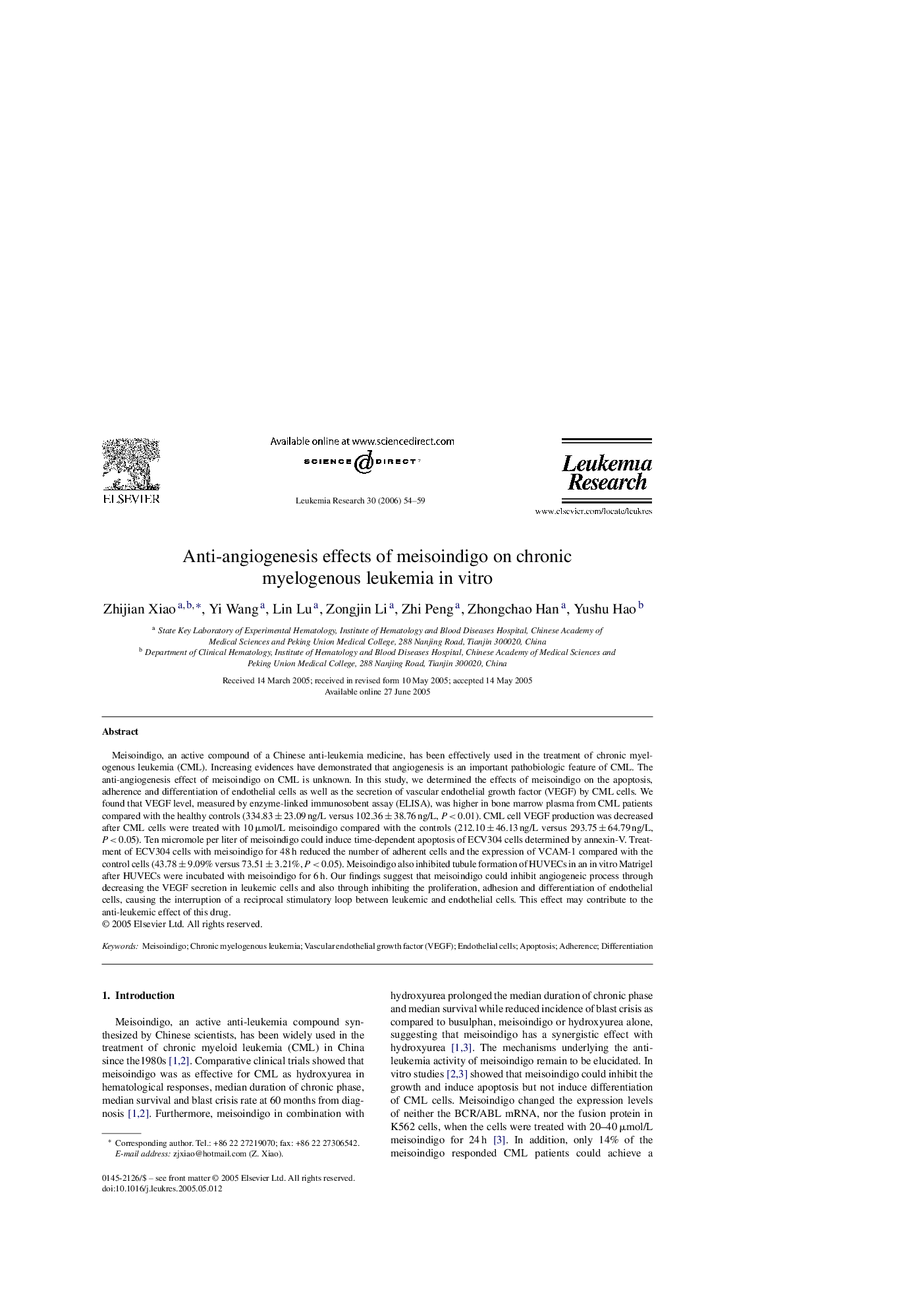| Article ID | Journal | Published Year | Pages | File Type |
|---|---|---|---|---|
| 2139342 | Leukemia Research | 2006 | 6 Pages |
Meisoindigo, an active compound of a Chinese anti-leukemia medicine, has been effectively used in the treatment of chronic myelogenous leukemia (CML). Increasing evidences have demonstrated that angiogenesis is an important pathobiologic feature of CML. The anti-angiogenesis effect of meisoindigo on CML is unknown. In this study, we determined the effects of meisoindigo on the apoptosis, adherence and differentiation of endothelial cells as well as the secretion of vascular endothelial growth factor (VEGF) by CML cells. We found that VEGF level, measured by enzyme-linked immunosobent assay (ELISA), was higher in bone marrow plasma from CML patients compared with the healthy controls (334.83 ± 23.09 ng/L versus 102.36 ± 38.76 ng/L, P < 0.01). CML cell VEGF production was decreased after CML cells were treated with 10 μmol/L meisoindigo compared with the controls (212.10 ± 46.13 ng/L versus 293.75 ± 64.79 ng/L, P < 0.05). Ten micromole per liter of meisoindigo could induce time-dependent apoptosis of ECV304 cells determined by annexin-V. Treatment of ECV304 cells with meisoindigo for 48 h reduced the number of adherent cells and the expression of VCAM-1 compared with the control cells (43.78 ± 9.09% versus 73.51 ± 3.21%, P < 0.05). Meisoindigo also inhibited tubule formation of HUVECs in an in vitro Matrigel after HUVECs were incubated with meisoindigo for 6 h. Our findings suggest that meisoindigo could inhibit angiogeneic process through decreasing the VEGF secretion in leukemic cells and also through inhibiting the proliferation, adhesion and differentiation of endothelial cells, causing the interruption of a reciprocal stimulatory loop between leukemic and endothelial cells. This effect may contribute to the anti-leukemic effect of this drug.
